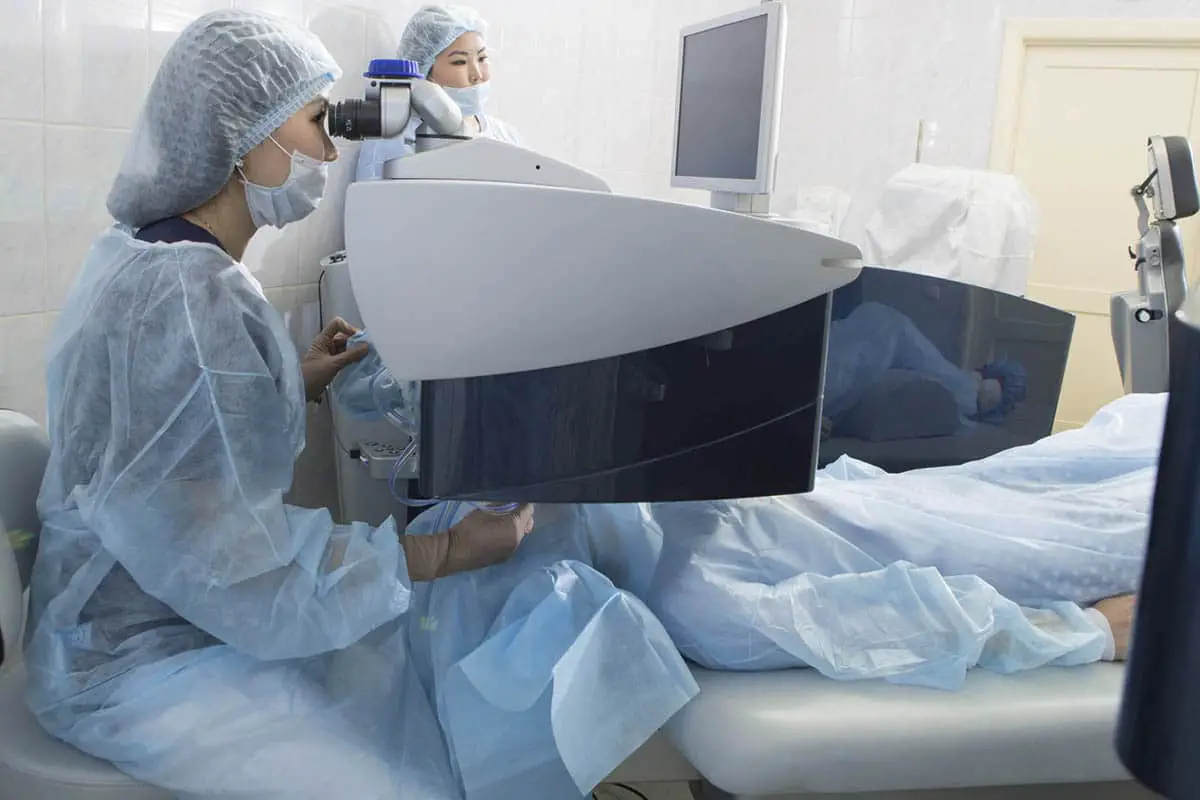A cataract is probably one of the most common eye conditions. At one point in our life, there’s a good chance we might get it, or we know someone who has it.
A Cataract is an eye condition in which your eyesight becomes progressively cloudy. If not treated cataract can cause loss of vision that cannot be corrected with glasses or common eyesight surgeries such as LASIK.
It might look scary but ophthalmology has developed a lot and there is a surgery that can restore one’s vision.
In the following article, you will read all essential information on cataract surgery in Singapore: how cataract is developed, what to expect during and after the surgery as well as the cost you can expect from cataract surgery in Singapore.
How is cataract developed
According to Dr Claudine Pang, a consultant ophthalmologist at Asia Retina Eye Surgery Centre in Singapore, most cataracts are seen in older patients so age is one of the deciding factors when it comes to the condition.
Other potential reasons for cataract are sun overexposure, diabetes, certain medications (corticosteroids) or trauma to the eye.
When to see a specialist? What are the symptoms?
- Cloudy vision
- Poor night vision – such as seeing halos around lights
- Sensitivity of bright lights
- Double vision
If you have any of these symptoms, it’s best to see an eye specialist and get a diagnosis, because the earlier you get a diagnosis the less risk of worsening and complications.
Different types of cataract surgery
Traditional Surgery
Traditional cataract surgery also called phacoemulsification cataract surgery is the standard procedure for cataract and also one of the most frequent surgeries in the world. It’s also considered a very safe procedure with a 95% success rate.
Phacoemulsification includes making a tiny incision in the patient’s cornea and then breaking the cataract with ultrasound after which it is removed. Then your own lens will be replaced with an artificial one (IOL).
The procedure lasts around 40 minutes and you probably won’t have to stay overnight.
Laser-assisted cataract surgery
As you can guess by the name, in the laser-assisted surgery, a laser is used in some of the steps. Here, the incision is made by the laser and then it can soften the cataract.
After that the steps from the traditional procedure are repeated – an ultrasound breaks the lens and suctions the pieces out. After that the artificial lens is put into the eye.
How to choose between traditional and laser-assisted surgery?
Usually, the doctor will opt for laser-assisted surgery if certain qualifications are met. However, if the patient has astigmatism, the doctor might recommend having the laser-assisted surgery, especially if the patients want their astigmatism corrected. In that case, the laser corrects the vision with reshaping the cornea.
There are some important details you’ll need to consider if you have the option of choosing between the two. Such as the doctor’s experience with lasers and the cost of the procedure.
Lasers are complicated machines and it can take some years to learn everything about them, which means that if the doctor is doesn’t have much experience with the equipment you’re risking damage to your eyes.
So it’s always a good idea to be sure of your doctor’s experience with laser surgeries and its optimal to decide on one with more than 100 surgeries performed.
Laser surgeries can also be more expensive as lasers are expensive machinery – clinics have to invest large sums to be able to purchase one which increases the price of the procedure.
Both surgeries have great outcome rates so to choose well, you’ll have to discuss properly with your doctor as well. After careful examination, your ophthalmologist will determine and recommend the procedure suitable for you.
What to expect after the procedure?
As mentioned earlier, cataract surgery does not involve an overstay at the hospital for the patient. However, you’ll need some assistance getting back home as driving is not recommended on the first day of surgery.
Second, you’ll need some days at home to rest before going back to work for all of your tasks. Your eye doctor will give you instructions on what to do after the procedure so you ensure optimal results and, of course, you need to follow them.
Usually, doctors recommend applying eye drops and putting an eye shield while sleeping. They also will tell you to avoid intensive exercising and sports for at least a month, as well as lifting heavy objects or doing strenuous work.
What’s the cost of having cataract surgery in Singapore?
Cataract surgery cost in Singapore can differ greatly if you’re a private or insured patient. As a private patient, you’ll probably pay anywhere between 1200$ to 4000$, not including your doctor’s fee or hospital stay. If you have any complication you might have to pay more for the prolonged treatment.
If you have insurance, you might claim the full amount depending on your insurance policy, etc.
Conclusion
As mentioned, cataract is one of the most common eye conditions and thus cataract surgery is one of the most practised in the world. You can choose between laser or traditional surgery based on your doctor’s recommendations.
Like any medical procedure, it’s important to do proper research and don’t hesitate to ask questions to your doctor and follow his/her advice for after the surgery.













